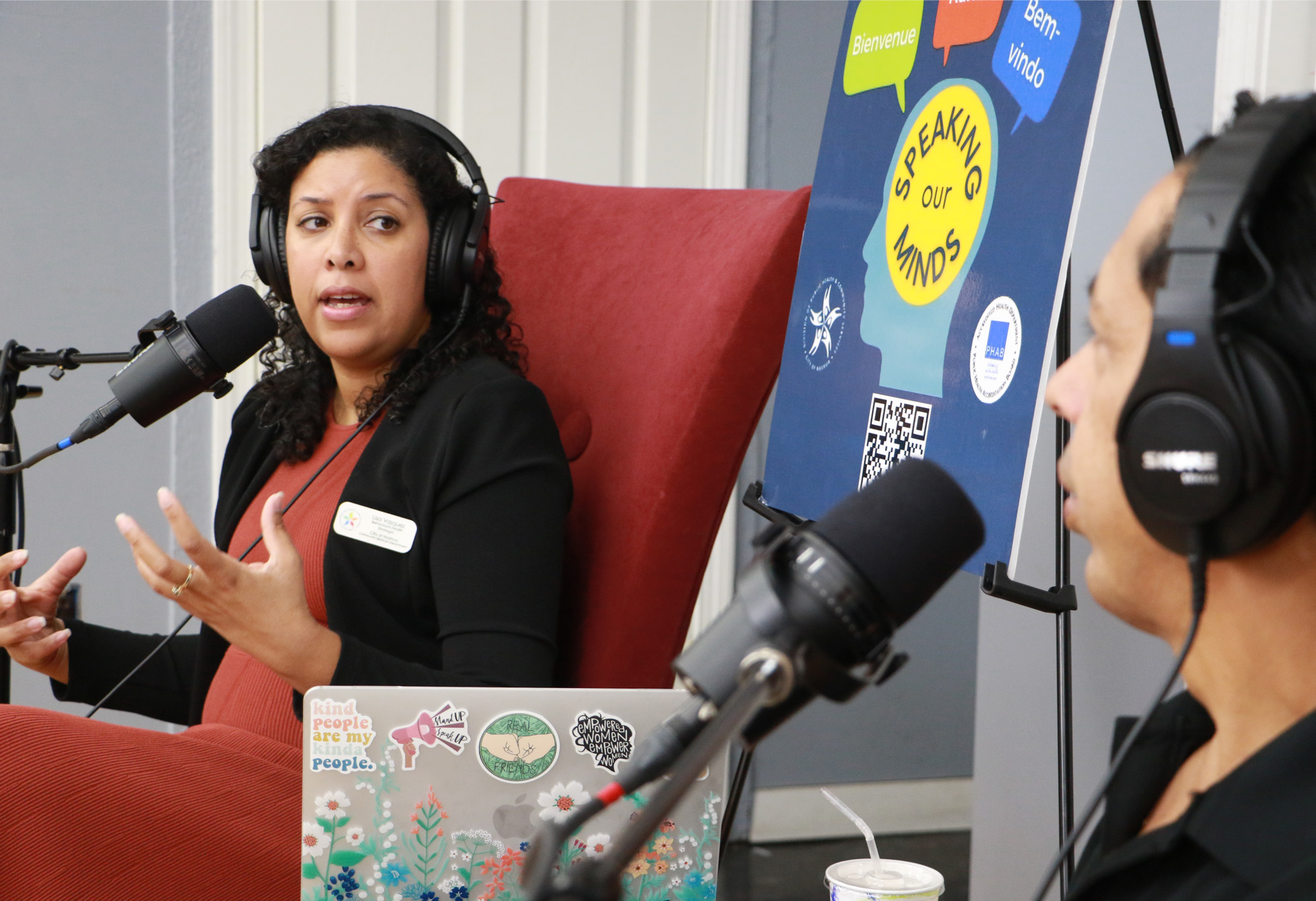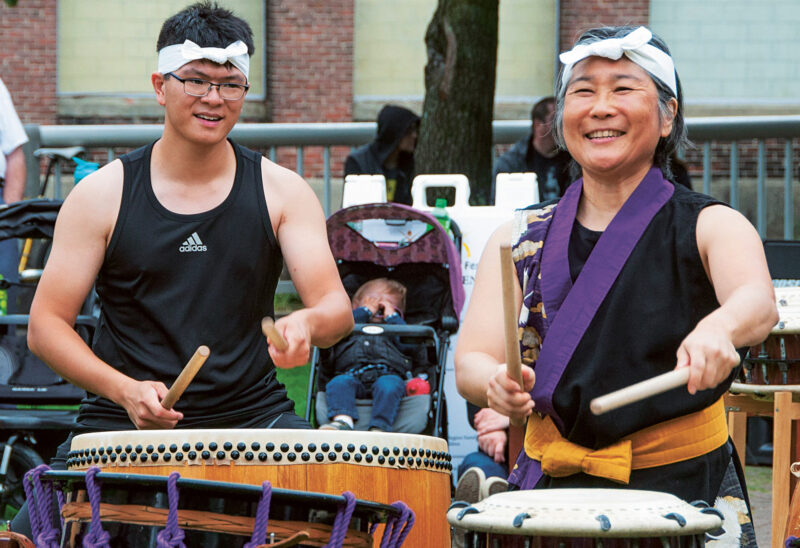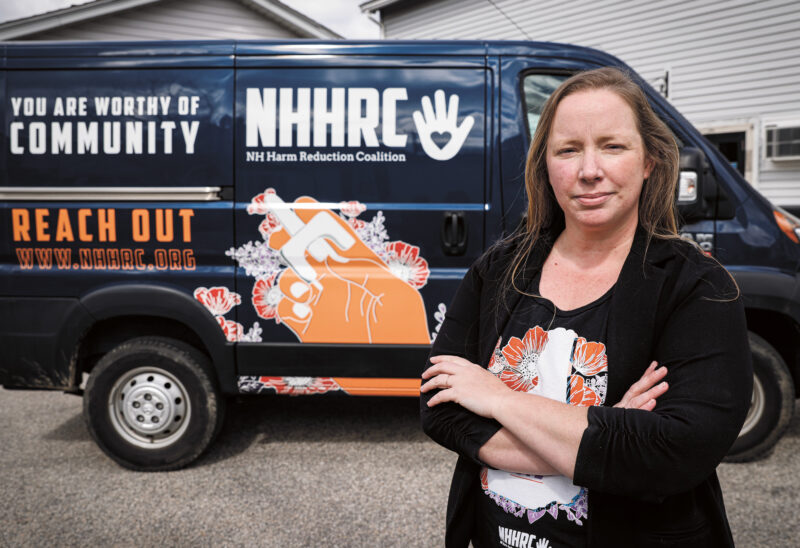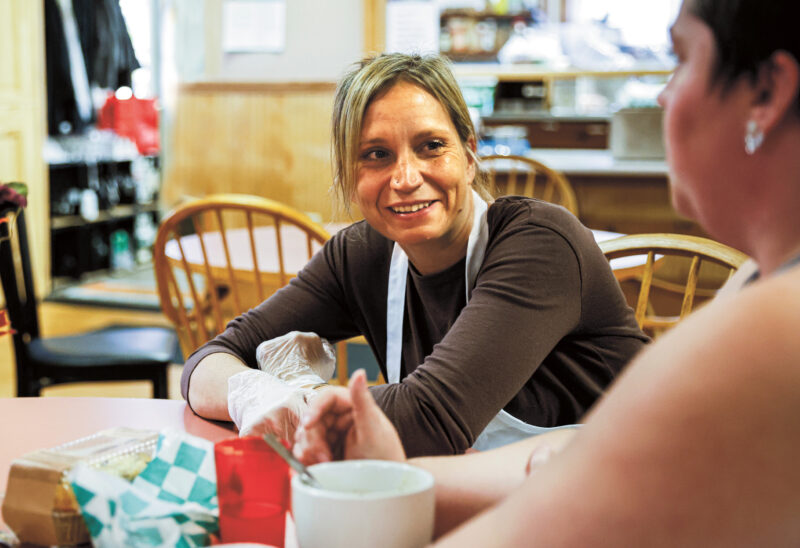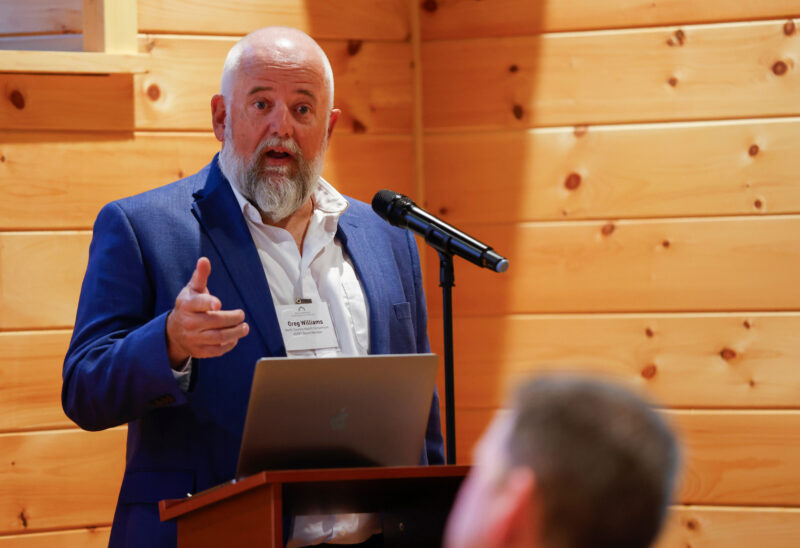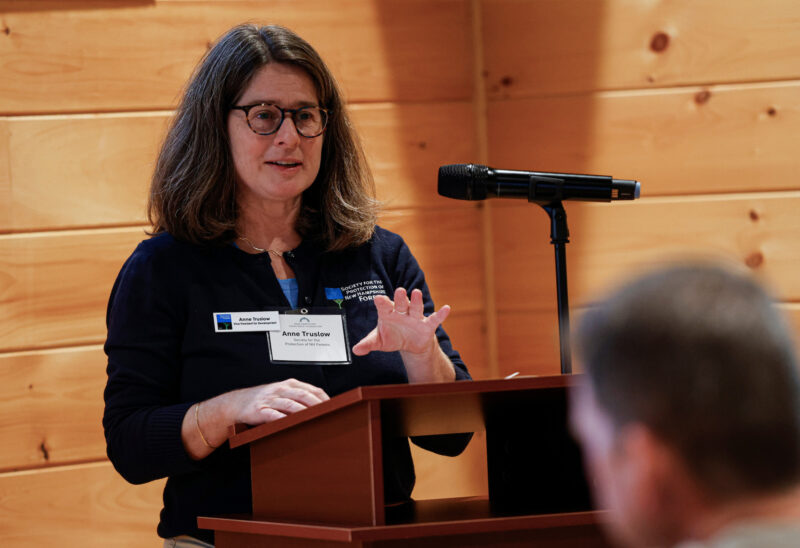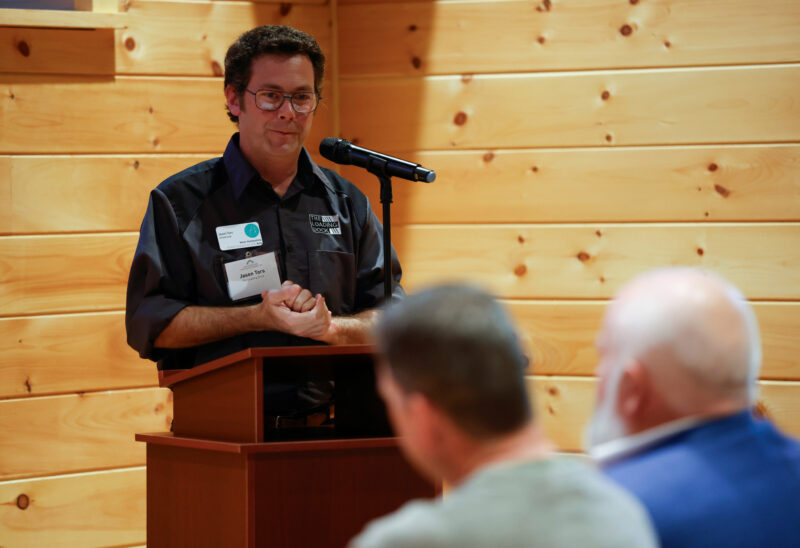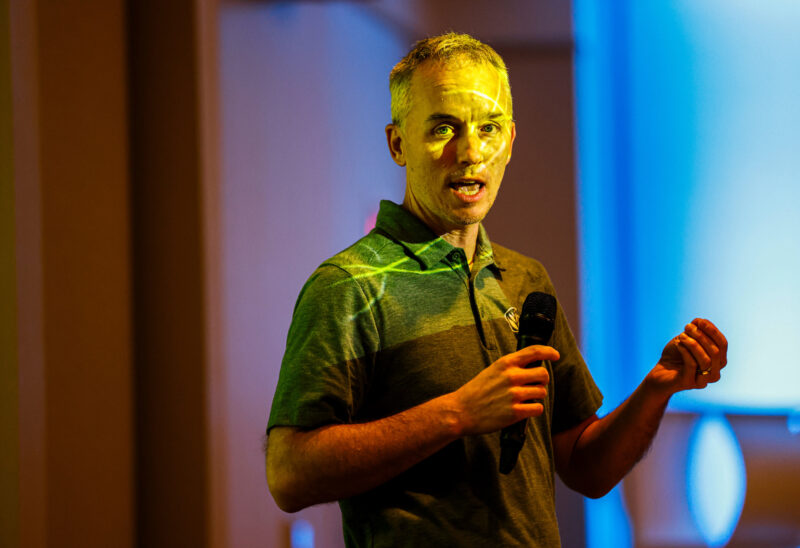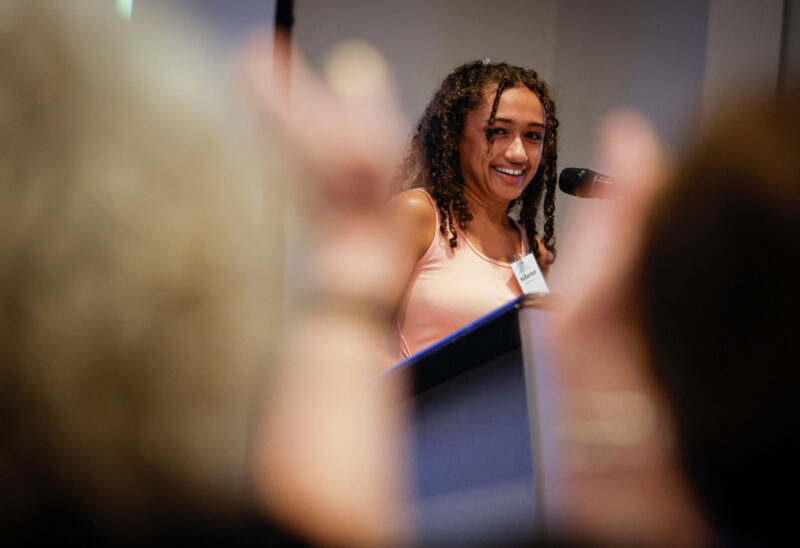It was not a typical Saturday at La Fama 2 barber shop in Nashua’s French Hill neighborhood.
Barbers clipped, trimmed and shaved customers’ hair, as usual. Laughter and multiple conversations, in Spanish, competed with the buzzing tools. At one end of the crowded shop, two microphones stood next to a couple of chairs.
Lisa Vasquez, behavioral health strategist for Nashua’s Department of Public Health and Community Services, sat facing Rafael Almonte, the shop’s owner.
They were recording a podcast called “Speaking our Minds,” that presents programs in five different languages to address how residents from different cultures approach behavioral or mental health challenges.
Each program begins with a simple word, “Welcome,” in English, French, Swahili, Portuguese and Spanish. “Welcome. Bienvenue. Karibu. Bem-vindo. Bienvenidos.”
The program at the barbershop was recorded in Spanish. Vasquez introduced Almonte and the topic of the day: Machismo. She defined it as a social attitude in which a man exhibits “arrogant control” over women and children in his family and demands that family members be “subservient to their role as the head of the family.” While this particular podcast was geared toward speakers of Spanish, the topic is hardly the sole issue of any single group – but cuts across cultures, countries and languages.
Vasquez said machismo includes positive and negative aspects, including courage, honor, dominance, aggressiveness, sexism and reserved emotions – and can lead to anxiety and depression and even contribute to domestic violence.
Almonte agreed that machismo is a powerful cultural force, and that it discourages men from seeking support, even if they recognize they are facing challenges. He said it is important that men in the community know there are programs to help them deal with emotional issues in a non-confrontational way and that there are safe places to talk – including his neighborhood barber shop.
“That’s why my door is always open,” he said on the podcast. “Many people have come here very sad and leave very smiley.”
The city’s Public Health and Community Services Department created “Speaking Our Minds,” with production partner First Gen Multimedia, to reach communities in their own languages and through familiar cultural perspectives to help overcome the stigma of talking about mental health and assure people facing challenges that they are not alone.
Charitable Foundation grants helped launch the program and support its current second season.
The program does not simply translate mental health information from English. It gives voice to the issue from a variety of cultural perspectives, offering a forum for community members to participate through the lens of their own experience.
“Just because people from a particular culture don’t go to a counselor doesn’t mean they don’t care or are not taking care of their mental health,” Vasquez said.
Residents from one culture might turn to their church. Others nurture mental health through healthy eating and exercise. Some talk with friends or families – or barbers. Some accept counseling or medication, which are more prevalent in English-speaking cultures.
“Because of that, we don’t want to just talk about mental health as ‘you have to see a counselor or you have to be on medication,’ but through the whole continuum of services … so people understand there are many pathways to mental health recovery and there’s really nothing wrong with asking for help,” Vasquez said.
The Spanish episodes are geared toward the state’s Hispanic population. French programs engage those with West African backgrounds. Swahili, people from East African cultures and Portuguese, those with ties to Brazil, Portugal and the Azores.
The podcast streams on websites such as Podbeam, Spotify and Apple Podcasts.
The first season addressed topics such as depression, anxiety, attention deficit disorders and autism. Hosts explained symptoms, where to get help and how those speaking the specific language of each episode approach the challenges. Community guests discussed their own experiences.
For the second season, Vasquez has moved production from the studio into the community to encourage more interaction with residents.
She plans ten episodes, each in the five languages, recorded at locations around Nashua. Future topics include post-partum depression, how societal expectations affect women’s mental health and how cultural differences affect family relationships. With community guests, Vasquez will explore mental health through different lenses: spiritual, physical, social, medical, nature, food and culture.
“We want to talk about the range of emotions through these topics,” she said, because sometimes people condense descriptions of emotions into inaccurate generalities – saying, for example, that they are “sad” instead of “frustrated,” “angry,” instead of “anxious.”
“You can’t process an emotion correctly if you can’t name it correctly,” she said.
Each episode ends with information about the national 988 telephone hotline for rapid mental health response and services.
At the barber shop, amid the buzzing and clipping, side conversations ceased as patrons listened to Vasquez and Almonte discuss machismo and how it affects men’s mental health.
One topic was that macho men aren’t supposed to cry, even though, as Vasquez explained, shedding emotional tears during periods of high stress or grief helps eliminate stress and toxins from the body.
“Men say, ‘If I say in front of my friends that I cried they will see me as a woman,’” Almonte replied. “They don’t develop the part you explained to me that men should cry to release all that stress.”
No patrons volunteered to be part of the program, but Vasquez said they were listening, and learning.
After the recording, one man told her he believes more education and mental health support would improve family relationships and reduce domestic violence, which he blamed on machismo culture.
And, patrons said they were pleased to learn of a fatherhood peer support group in the community.
Word was spreading in the community even while the podcast was being recorded. More than 100 people watched the recording live as Almonte streamed it on social media.
He was proud to help inform his community that professionals and caring individuals like him are ready to help.
“Men almost never accept help because they say ‘I am fine,’ but they might be dying inside,” Almonte said.
If you or a loved one is experiencing a mental health or substance use crisis, help is available 24/7. Call or text 833-710-6477, or visit www.nh988.com

